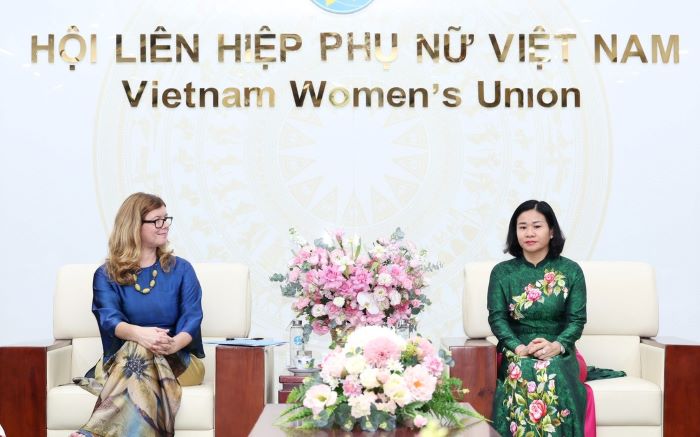John Hendra Speech at Signing ceremony of Vietnam Women’s Union for Say No to Violence Campaign 31st October 2008
This is absolutely crucial to an issue such as Violence against Women, which knows no boundaries. As Secretary General Ban Ki Moon said on International Women’s Day 2007 ‘Violence against women and girls continues unabated in every continent, country and culture. It takes a devastating toll on women’s lives, on their families and on society as a whole. Most societies prohibit such violence-yet the reality is that too often, it is covered up or tacitly condoned’
Speaking out against violence towards women is important at the highest levels. It is essential that men voice this concern and that we take responsibility not just for our actions but also when we see other men acting violently. It is our responsibility not only to not commit but also not condone any act of violence. To remain silent on violence towards others is tacit approval for it. The UN advocates zero tolerance on this issue.
UNIFEM has created this particular campaign because it sees political will and resources in solutions and prevention strategies are the keys to violence prevention. When there are commitments and resources, change has a greater chance of taking effect — policies can be changed, services established, judges and police trained. Any signature on this campaign, but in particular signatures from prominent figures and organizations such as The Vietnamese Women’s
The UN has in recent years been very concerned with uncovering ways to ensure effective and stronger integration of women’s involvement and perspectives in all phases of conflict and post-conflict activities. one example of this in 2007 was The UN Security Council's adoption of resolution 1820 on women, peace and security, which calls for the immediate cessation of rape and other forms of sexual violence against civilians, and affirms that such acts “can constitute war crimes, crimes against humanity or a constitutive act with respect to genocide.” Say No focuses on such local realities that often see an absence of preventative and judicial response, which creates a climate in which abuses multiply.
Worldwide the campaign has close to 300 000 signatures. More than 200 members of parliament and parliamentary staff from more than 70 countries have signed this campaign. Recent governments to sign on include
It is encouraging to note that where as four years ago only 45 countries had legislation on domestic violence, today at least 89 countries have some legislation provisions on the issue. This of course includes the recently past law on Domestic Violence Prevention and Control was passed by the National Assembly of Vietnam in November 2007. This law explicitly defines and prohibits domestic violence and provides a better framework to protection to victims of violence as well as warrants a review of numerous procedures, services and institutions to make them more responsive to the needs of victims, children, among others
More recently, last week, to mark the National Women’s Day, the Ministry of Labour, Invalids and Social Affairs (MOLISA), the in cooperation with UNIFEM and funded by the Canadian International Development Agency (CIDA) and the ASEAN Secretariat organized the ASEAN Workshop on Domestic Violence Legislation on 20-21 October 2008 in Ha Noi. More than 60 representatives from 10
This is the strength of such a campaign, building partnerships. Say No encourages Global, regional and national solidarity. I commend the Vietnam Women’s







